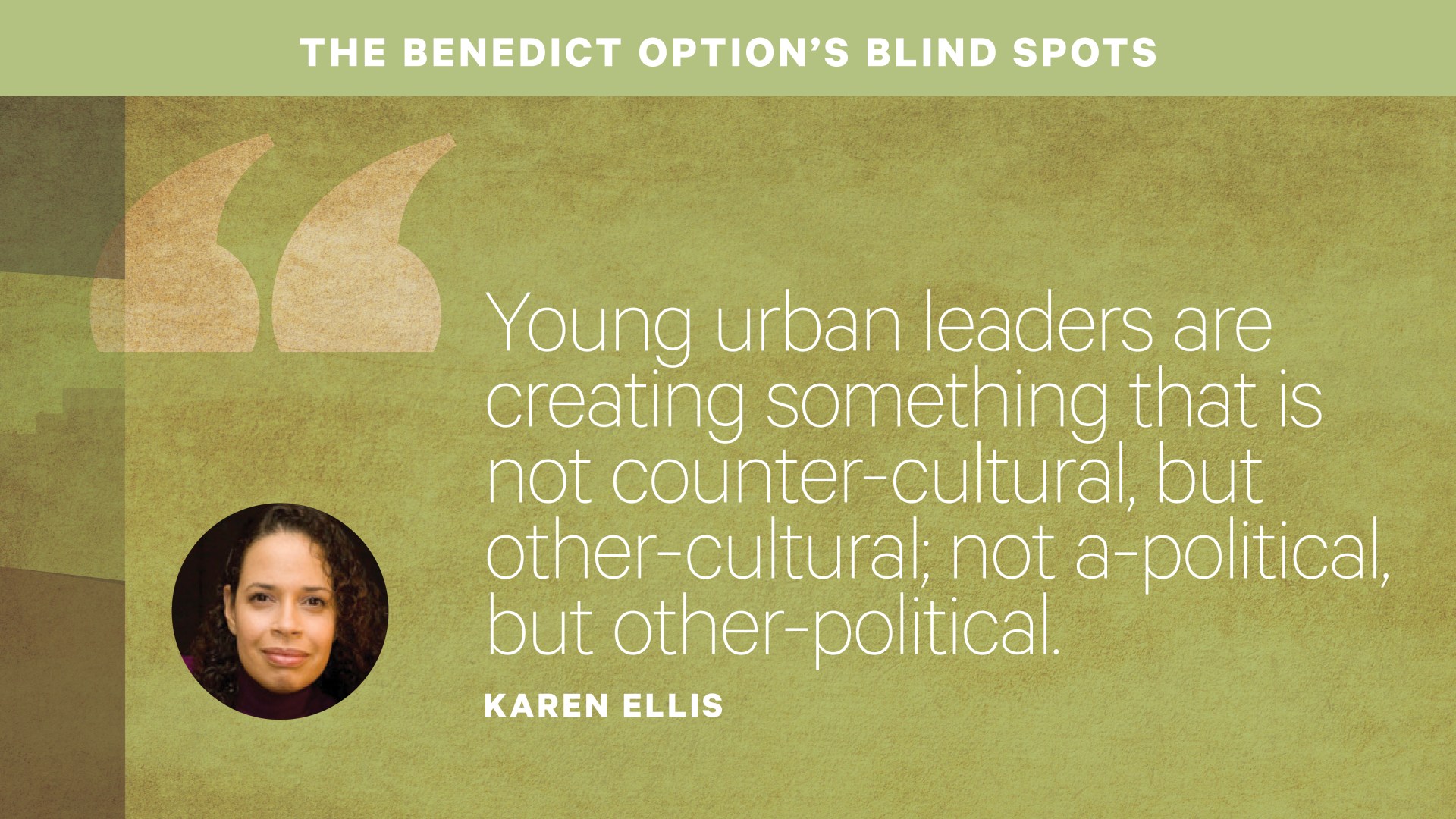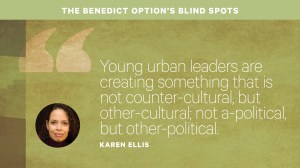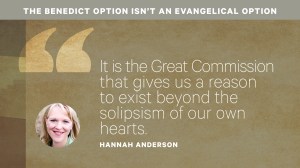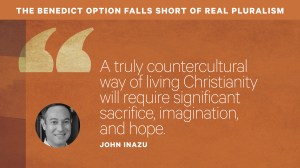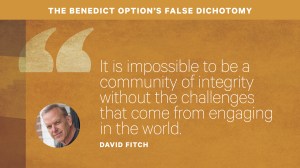In this series
Christianity Today asked four thoughtful voices in our movement to read our March cover story on The Benedict Option and answer the following question: “In a time of weakening institutions and in an increasingly pluralistic age, what is the best way for Christians to strengthen their local Christian community?”
The impulse of some in the church to focus inward is admirable on the surface. A desire for more robust communities committed to prayer, discipline, study, obedience, and being the church without compromise and at cost, are key to surviving a chilly—and sometimes hostile—cultural climate.
Yet as an advocate for the 250 million global Christians currently living under various levels of hostility, I’ve observed that inward focus is not where New Testament community ends.
While the church in America is certainly not persecuted, we are living in an unsettling era of rediscovering the place of Christianity in American society. Many historically marginalized communities wounded by false Christianity would even say that Christianity is discovering its place for the first time.
The communities I see around the globe who are most effective in navigating such waters are those who are creatively focused both inward and outward. They create robust and stealthy communities, while displaying a transformational message that’s winsome to outsiders looking in.
Robust theology will yield robust communities. From a Protestant perspective, God’s story from Creation to Revelation is of a Covenant God empowering his beloved to persevere through hostility leveled specifically against them. The New Testament tells the beautiful story of persevering community, faith, and creativity in the context of cultural adversity. It seems we’ve forgotten how to read our Bibles with a persecution/perseverance hermeneutic.
Christians seeking a way forward in America are overlooking numerous global and local communities already living in mutual commitment to one another. I’ve written previously on the rich community movements among Protestant urban disciple-makers in cities like Chicago, South Dallas, Camden, New Jersey, and Fairfield and Montgomery, Alabama. Parachurch organizations act as community bridges. Conferences like Legacy Disciple provide training, principles, and networks. Together with grassroots movements such as the AND Campaign, they’re already operating nationally like the global, invisible, marginalized church.
By simply applying the whole counsel of Scripture in their ethics and their epistemology, young urban leaders are creating something that is not counter-cultural, but other-cultural; not a-political, but other-political.
Like our spiritual family overseas, they’re living a stealthy, sacrificial New Testament reality so that their oppressors may also know Christ and live. Some have given their lives at the hands of those they’ve come to love and serve, spawning the concept of an “urban martyr.” They are stealthily infiltrating systems that stifle human flourishing. Families, neighborhoods, communities, and local government systems are being affected. Newcomers—even oppressors—who are hungry for more than the pale emptiness of what other communities promise but do not deliver are drawn in.
The New Testament provides a model of persevering faith, creativity, and community. Anyone seeking a more dynamic, transformational, risk-taking church in America will humbly learn from both global and local leaders who are living its reality. They provide glimmers of biblical perseverance and growth that can be highly instructive, if we are humble enough hear.
Karen Ellis is an ambassador for International Christian Response.

